The blue ticks disappeared on Thursday (April 20) from the accounts of some of Twitter's most followed but unpaid celebrities and public figures, including Pope Francis, singers Beyonce, Lady Gaga, TV host Oprah Winfrey and even former US President Donald Trump.
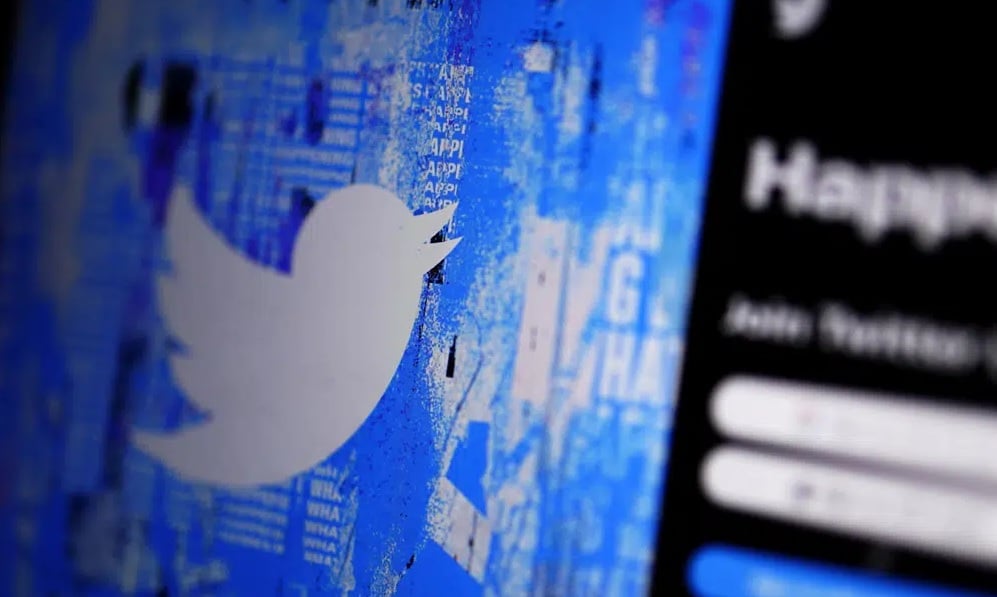
Twitter logo. Photo: AP
It comes after boss Elon Musk introduced a new paid service last year called Twitter Blue with the aim of "democratizing journalism and empowering the voice of the people".
About 300,000 users had the green checkmark before Musk pulled the plug on the verification system on Thursday. The badge helps distinguish profiles of public figures from ordinary accounts, thereby providing a shield to prevent misinformation.
There were about 116,000 accounts signed up for the Twitter Blue service last month, according to digital intelligence platform Similarweb.
Some users, including writer Stephen King, appear to have retained their blue ticks despite refusing to pay for the new service. Musk responded to King's tweet saying he was "personally paying for some accounts."
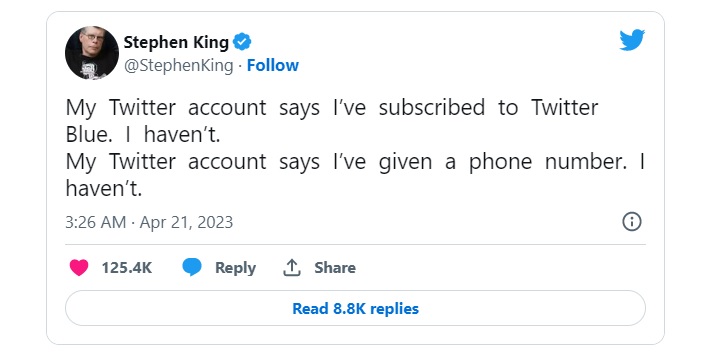
Writer Stephen King's Twitter account still has a blue tick even though he posted without paying or providing personal information for this service.
Twitter started tagging users with blue ticks about 14 years ago. After buying the social media giant for $44 billion last October, Musk has tried to boost the platform's revenue by offering new subscriptions and premium services.
Several impersonating accounts, including some impersonating Musk's companies Tesla and SpaceX, appeared shortly after the launch of Twitter Blue. Twitter temporarily suspended the service a few days after its launch.
The cost to display the verification mark on the new service varies: Individual users can pay $8 per month, but organizations start at up to $1,000 per month to keep the logo on their accounts.
Thursday's removal of the blue checkmark also hit politicians and official organizations, with some concerned about the public not knowing which Twitter accounts were fake and which were real; thereby affecting important announcements, such as about natural disasters or disease outbreaks.
“There really needs to be a way for emergency managers to verify that they are real on this site, or else imposters will cause suffering and death,” US Senator Brian Schatz wrote on Twitter.
Huy Hoang (according to AFP, AP, DW)
Source






![[Photo] The Government Standing Committee works with ministries and branches on the real estate market situation.](https://vphoto.vietnam.vn/thumb/1200x675/vietnam/resource/IMAGE/2025/5/24/e9b5bc2313d14c9499b8c9b83226adba)
![[Photo] Ho Chi Minh City holds funeral for former President Tran Duc Luong](https://vphoto.vietnam.vn/thumb/1200x675/vietnam/resource/IMAGE/2025/5/24/9c1858ebd3d04170b6cef2e6bcb2019e)


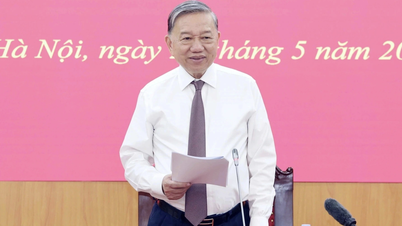

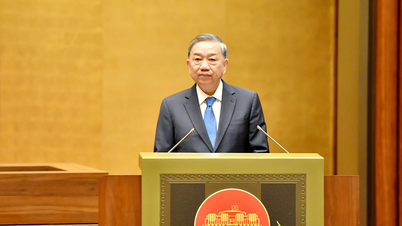



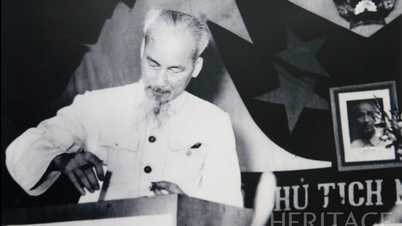














![[Photo] Party and State leaders visit former President Tran Duc Luong](https://vphoto.vietnam.vn/thumb/1200x675/vietnam/resource/IMAGE/2025/5/24/960db9b19102400e8df68d5a6caadcf6)














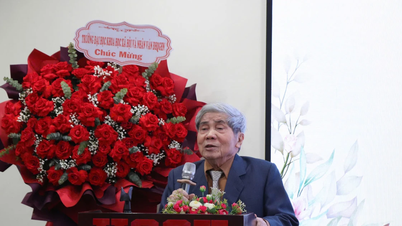














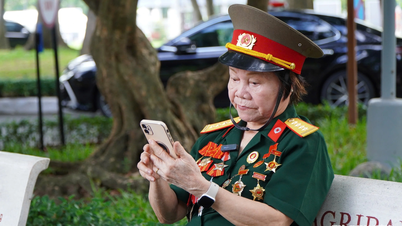
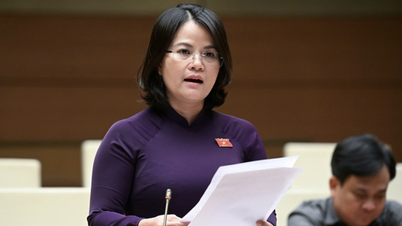
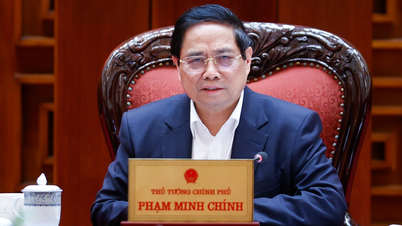
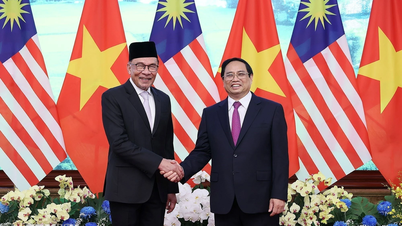









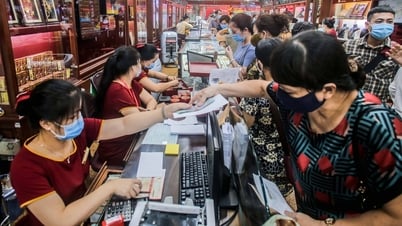






















Comment (0)